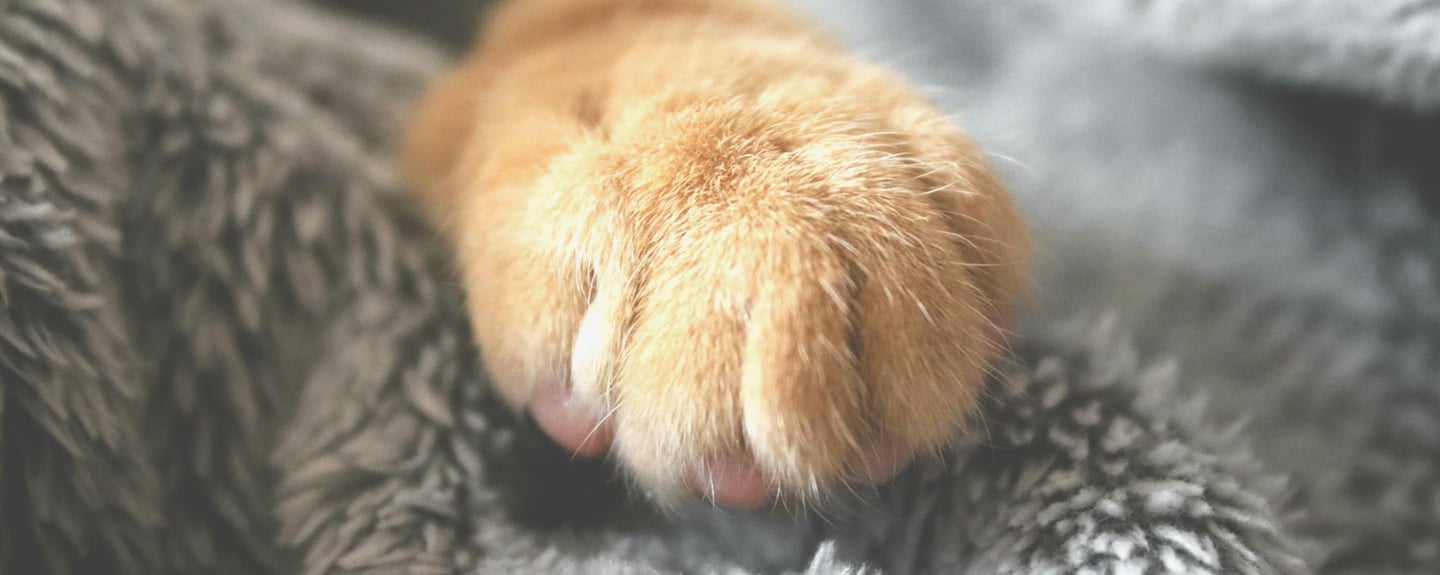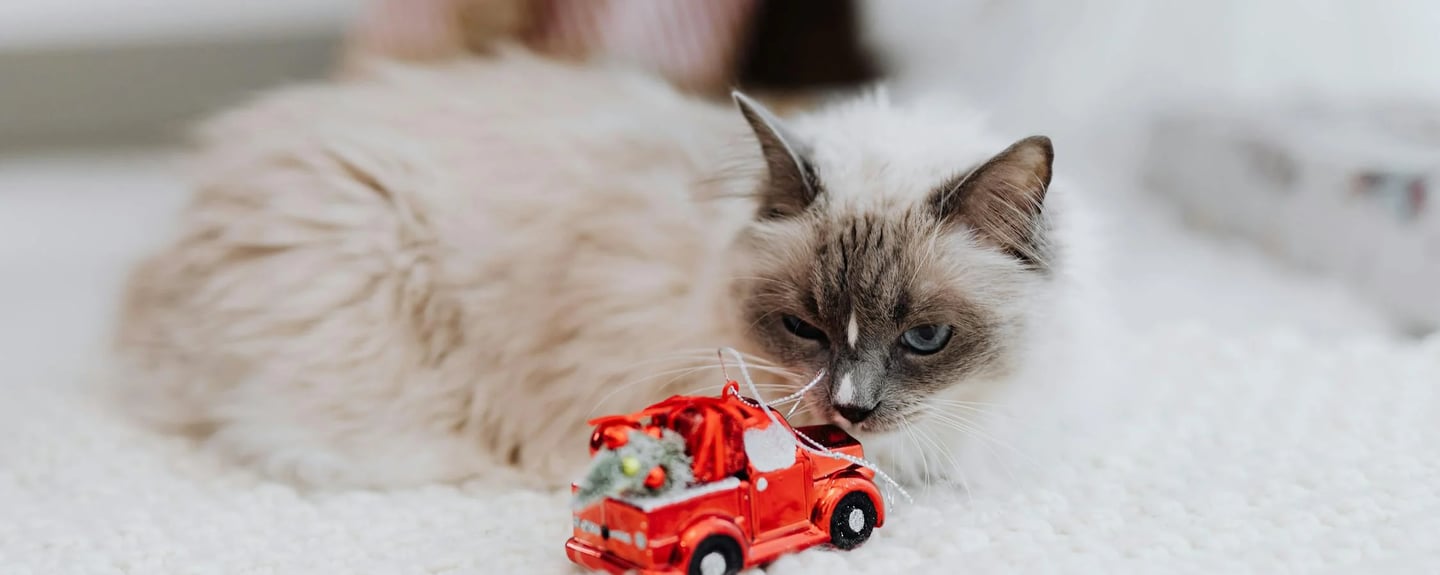Guaranteed Comfort and Complete Care for Your Pet.

The Ultimate Guide To Cats And Toxoplasmosis For Dubai Cat Owners


Toxoplasmosis is one of the most recognized infections linked to cats, yet many Dubai residents misunderstand the real risks. While concerns about cats and toxoplasmosis often rise during pregnancy or illness, most healthy cat owners face low danger when they stay cautious. Simple steps, regular vet visits, and clean habits make a big difference. This guide explains how toxoplasmosis affects cats and humans, highlights common toxoplasmosis symptoms in cats, and gives you practical advice to stay safe. Living with cats in Dubai’s environment brings unique responsibilities, but it also brings rewards. For expert help, trusted checkups, and peace of mind. Contact the petland Wellness Dubai: a reliable pet clinic Dubai residents trust and keep your pets healthy.
What Is Toxoplasmosis?
Toxoplasmosis is a disease caused by the Toxoplasma gondii parasite, which often lives in a cat’s digestive system. It spreads through contact with infected feces, making proper hygiene important for cat owners. Concerns about cats and toxoplasmosis are common, but understanding the facts helps reduce fear. Spotting early toxoplasmosis symptoms in cats, such as lethargy, poor appetite, or breathing trouble, is important for quick action. Healthy cats may show no signs, so regular vet checkups are key. With smart habits and the right care, the risks stay low. Staying informed helps you protect your pets and families without unnecessary worry.
Toxoplasmosis is caused by the Toxoplasma gondii parasite.
How Cats Get Infected
Cats usually get infected with toxoplasmosis in cats through eating raw meat, hunting contaminated prey, or touching infected soil. Birds, rodents, and even outdoor surfaces can carry the parasite. Once a cat eats or touches something contaminated, the parasite settles in their digestive system. Infected cats often shed the parasite through their feces, spreading it further. Young cats that hunt outside or eat uncooked meat face higher risks. Indoor cats have a lower chance, but exposure can still happen. Spotting early signs helps reduce complications. Staying alert to changes in behavior, diet, or energy can protect your pets. Proper hygiene and smart feeding habits make a strong defense against toxoplasmosis in cats.
Can Cats Show Symptoms?
Most cats with toxoplasmosis do not show obvious illness. However, in kittens or cats with weak immune systems, symptoms can appear. Staying alert to changes helps owners act early and protect their pets. Knowing the common signs of toxoplasmosis symptoms in cats can make a big difference. Here are the symptoms to watch for:
Fever
Loss of appetite
Lethargy
Respiratory distress
Eye inflammation
Recognizing these signs quickly gives cats a better chance to recover and avoid complications.
How Toxoplasmosis Affects Humans
While cats are the main host for the parasite, humans can catch toxoplasmosis through other sources as well. Eating undercooked meat, handling contaminated soil, or touching infected surfaces can all spread the parasite. Direct contact with infected cats is possible, but it is less common than many believe. Most healthy people who become infected experience mild symptoms or none at all. However, serious health risks can arise for pregnant women or individuals with weakened immune systems. Symptoms may include body aches, swollen lymph nodes, and fatigue. Staying aware of basic hygiene rules and seeking prompt medical advice helps reduce the risks linked to cats and toxoplasmosis.
Common Transmission Methods
Toxoplasmosis can spread through several common ways that many people do not expect. While cats and toxoplasmosis are often connected, human infection happens more often through food or the environment. Handling cat litter with infected feces is a major risk if proper hygiene is ignored. Eating undercooked or contaminated meat can also expose someone to the parasite. Consuming unwashed fruits and vegetables carries the same risk, especially if you touched contaminated soil or water. Gardening without gloves or drinking untreated water can also lead to infection. Understanding these risks helps people stay safer. Good habits and careful food preparation lower the chances of catching toxoplasmosis from daily activities.
Who Is at Risk?
Most healthy people exposed to toxoplasmosis develop immunity without serious problems. However, cats and toxoplasmosis still present real risks for certain groups. Pregnant women face higher danger because infection can harm the unborn child. Early infection during pregnancy may cause serious complications, including birth defects or miscarriage. If you have a weakened immune systems are also vulnerable. Cancer patients, organ recipients, and those with untreated HIV face greater risks of severe illness. In these cases, toxoplasmosis can spread beyond the intestines and damage the brain, eyes, or other organs. Understanding these risks helps people stay cautious, maintain strong hygiene habits, and protect their health while living safely with cats.


Toxoplasmosis in cats present risks for certain groups.
How to Prevent Toxoplasmosis in Your Cat and Household
Living with cats in Dubai means you must stay extra careful about hygiene and daily habits. Limited outdoor access and reliance on indoor litter boxes raise the risk of exposure. Simple steps help prevent problems before they start. Always wash your hands after cleaning litter boxes. Keep your cat’s litter box clean and placed away from food areas. Feed your cat cooked or commercial food instead of raw meat. Regular vet visits also help catch early signs of infection. Good habits protect your home and family without causing stress, and staying alert keeps the risks of toxoplasmosis low and your cat healthy.
The Role of Regular Veterinary Checkups
Regular veterinary visits are key to protecting your cat’s long-term health. Routine checkups help detect hidden problems early, including toxoplasmosis and other parasitic threats. Dubai’s warm climate can speed up parasite cycles and put indoor cats at higher risk than many owners expect. Staying consistent with yearly exams gives your vet a chance to spot early signs and recommend needed treatments. Quick action prevents small issues from growing into serious problems. Strong partnerships with trusted clinics give your cat better protection year-round. Regular health checks, smart habits, and proper hygiene keep cats healthier and families safer throughout every season.
What to Expect During a Checkup
The importance of regular vet checkups cannot be overstated. These visits help catch health problems early through several key evaluations. You can expect:
Nutritional evaluations
Behavioral assessments
Each part of the exam plays a role in keeping your cat healthy year-round. Blood and stool tests help spot infections and parasites before symptoms appear. Nutrition checks make sure your cat is getting proper food and care. Vaccinations protect against serious illnesses common in Dubai’s climate. Behavioral assessments reveal hidden health or stress issues. For more on why preventative care matters, especially in high-risk environments like Dubai, explore our full guide on regular veterinary care.
What to Do If Your Cat Tests Positive
A positive test for toxoplasmosis is not a reason to panic. Most cases respond well to early treatment. Vets usually prescribe antibiotics, such as clindamycin, to help clear the infection. In some cases, anti-inflammatory medications are needed if the eyes or nervous system are affected. Supportive care is important when symptoms are severe or if recovery takes longer. Always follow your vet’s treatment plan closely to keep your cat safe. If your cat becomes very ill, contact a veterinary hospital in Dubai that offers 24/7 observation and advanced diagnostic tools. Quick action protects your cat’s health and eases recovery.
Supporting Your Cat’s Immune System Naturally
Improving your cat’s immune system naturally helps reduce the risk of infections, including toxoplasmosis. A strong body fights illness more effectively. Feed a balanced diet packed with essential nutrients to support overall health. Always provide fresh water to maintain proper hydration and digestion. Keep stress low by offering a stable routine and regular enrichment. Use the best supplements for your pet when recommended by your veterinarian to boost immune strength. Simple habits like these protect your cat from common threats, and carefull daily care builds lasting health benefits and keeps your cat better prepared for challenges over time.
With so much fear-based information about toxoplasmosis online, it is important to separate myths from facts about cats and toxoplasmosis. Many false claims create unnecessary fear. Here are common myths debunked:
All cats are dangerous to pregnant women.
Fact: Proper hygiene and regular vet care greatly reduce any risk.You must get rid of your cat during pregnancy.
Fact: Simple precautions allow you to safely keep your cat.Indoor cats cannot get toxoplasmosis.
Fact: They can if they eat raw meat or touch contaminated surfaces.
Knowing the truth helps protect both your pets and your peace of mind.


Vets usually prescribe antibiotics to help clear the infection.
Ensure Your Cat is Happy and Healthy
Toxoplasmosis may sound intimidating, but the right knowledge and preventive care can keep your family and pets safe. Understanding how the infection spreads helps reduce unnecessary fear. Watching for early signs and working closely with a trusted vet protects your cat’s health. Regular checkups, smart habits, and proper hygiene lower the risks of toxoplasmosis in cats even more. Dubai’s environment requires extra care, but simple steps make a big difference. If you have concerns about toxoplasmosis, testing, or your cat’s overall wellness, contact our Pet Clinic Dubai today. Book a wellness check to make sure your cat stays healthy, active, and protected throughout the year.
FAQ
Can indoor cats in Dubai still carry toxoplasmosis?
Yes. Indoor cats can carry toxoplasmosis if they’ve been exposed to contaminated raw meat or infected soil, even briefly.
How can I reduce the risk of toxoplasmosis if I'm pregnant?
Avoid cleaning litter boxes if possible. If you must, wear gloves and wash your hands thoroughly. Also, ensure your cat eats only commercial cat food.
Is it safe to adopt a cat if someone in the household is immunocompromised?
Yes, but take precautions: maintain strict litter box hygiene, avoid feeding raw meat, and schedule regular vet visits.
How do I know if my cat has toxoplasmosis?
Most cats show no symptoms. In rare cases, signs may include lethargy, loss of appetite, or fever. Consult your vet for testing if you're concerned.

